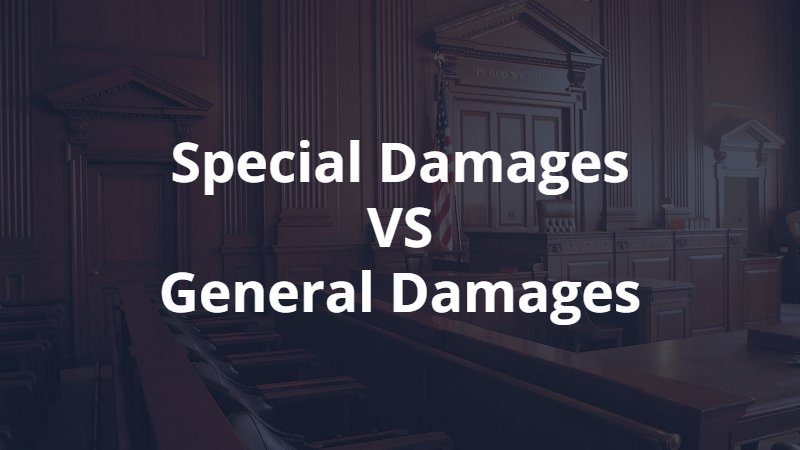In the context of a personal injury case, damages refer to the financial compensation that can be awarded to an injured party (plaintiff) for harm caused by the accused party’s (defendant’s) actions. In California, personal injury damages are placed into two categories: special damages and general damages.

What Are Special Damages?
Special damages, also known as economic damages, in a personal injury case are those that are special or specific to the individual victim. They refer to the exact costs associated with an incident or injury – costs that can be clearly determined. Special damages are commonly proven with a measurable figure.
Examples of special damages are:
- Medical care (current and future)
- Disability costs and accommodations
- Lost wages, income and earning capacity
- Vehicle or property repairs made necessary by the accident
Any specific monetary losses suffered by a plaintiff that can be traced back to the defendant’s negligence or wrongful acts can constitute special damages. The amount awarded will aim to reimburse the plaintiff for the full amount of his or her economic losses. Special damages are calculated based on actual financial losses and can be precisely quantified.
What Are General Damages?
General damages, also known as noneconomic damages or pain and suffering, describe the intangible ways in which an incident or injury has impacted the individual. Unlike special damages, they do not encompass specific financial losses suffered by a victim. Instead, they attempt to reimburse the victim for mental, emotional, physical and psychological harm suffered due to the defendant’s actions.
General damages can include:
- Physical pain
- Emotional distress
- Mental anguish
- Psychological trauma
- Post-traumatic stress disorder
- Depression or anxiety
- Impairment or disability
- Scarring or disfigurement
- Diminished quality of life
- Loss of enjoyment of life
- Loss of companionship or consortium
- Grief or mourning
General damages are more difficult to quantify than special damages since they are invisible and highly subjective. Unlike a physical injury such as a broken bone, a plaintiff cannot prove pain and suffering using hard evidence such as an x-ray. Instead, these damages are often established based on reports from psychiatrists, therapists and testimony from mental health professionals as expert witnesses. They can also be established by the Plaintiff or their family and friends.
A Third Category: Punitive Damages
Special and general damages are collectively known as “compensatory damages,” which are meant to compensate a victim for economic and noneconomic losses suffered in an accident. However, another type of damages may be available in certain circumstances: punitive damages. Punitive damages aim to punish or penalize a defendant for egregious acts of wrongdoing.
In some cases, punitive damages may be awarded by a judge if a defendant acted with gross negligence, recklessness, maliciousness or a wanton disregard for the safety of others. In California and Nevada, a plaintiff can qualify for punitive damages if it is proven through clear and convincing evidence that the defendant acted with oppression, fraud or malice.
Cases We Handle
Obtaining monetary compensation for special, general and/or punitive damages may take assistance from a personal injury attorney in Los Angeles. An attorney is essential for proving damages and establishing a plaintiff’s eligibility for financial compensation. A lawyer can negotiate with an insurance company for a fair settlement or take a personal injury case to trial, if necessary, for maximum compensation.